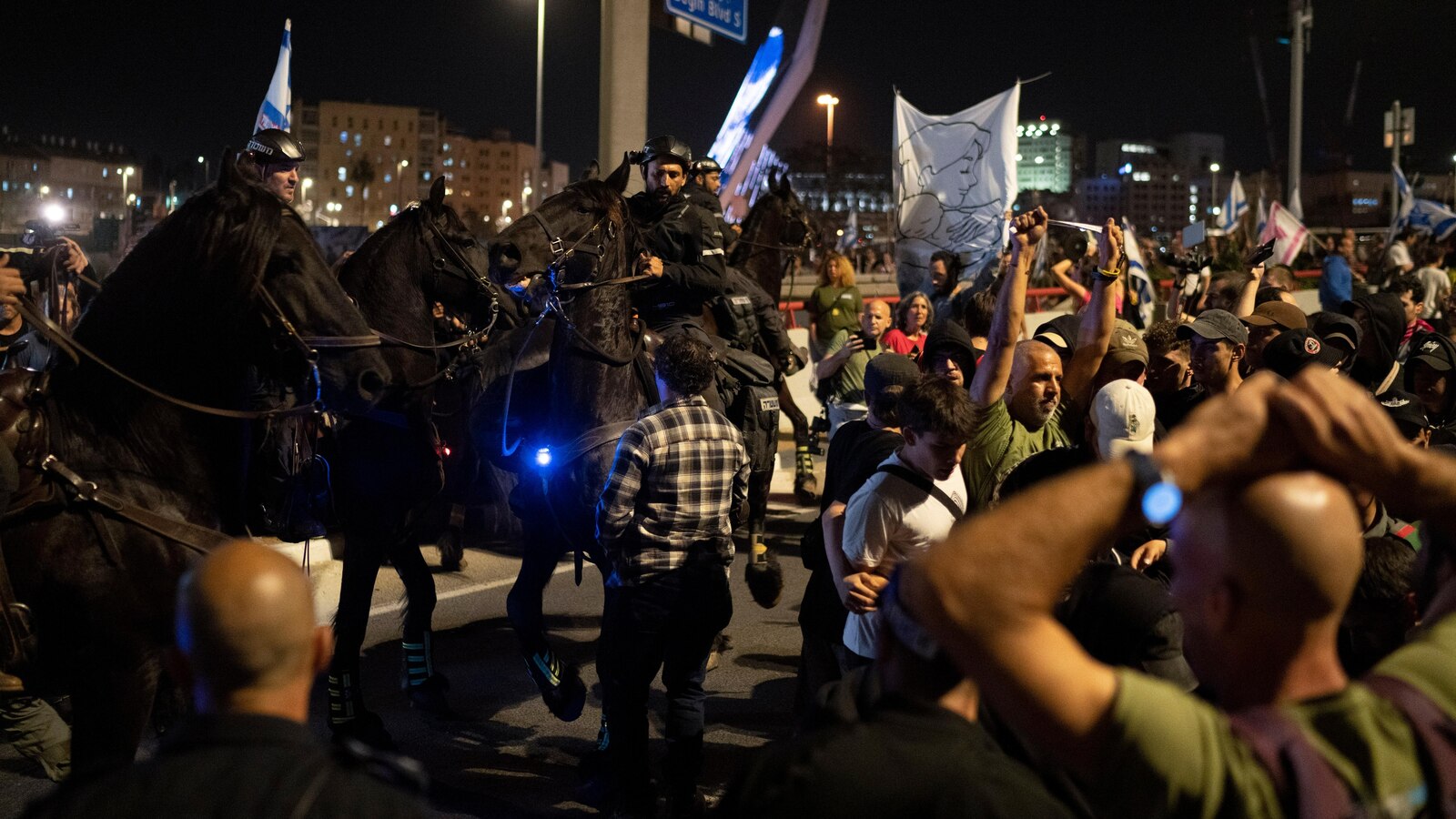DEIR AL-BALAH, Gaza Strip — The Israeli military withdrew from Gaza’s largest hospital early Monday after a two-week raid, leaving behind several bodies and a vast swath of destruction, according to Palestinian residents.
The military has described the raid on Shifa Hospital as one of the most successful operations of the nearly six-month war. It says it killed scores of Hamas and other militants, including senior operatives who had regrouped there after an earlier raid, and that it seized weapons and valuable intelligence.
The U.N. health agency said several patients died and dozens were put at risk during the raid, which brought even further destruction to a hospital that had already largely ceased to function. The heavy fighting showed that Hamas can still put up resistance even in one of the hardest-hit areas of Gaza.
Rear Adm. Daniel Hagari, the top military spokesman, said Hamas and the smaller Islamic Jihad group had established their main northern headquarters inside the hospital. He described days of close-quarters fighting inside different buildings, and blamed Hamas for the destruction, saying some fighters had barricaded themselves inside hospital wards while others launched mortar rounds at the compound.
He said the troops had arrested some 900 suspected militants during the raid, including more than 500 Hamas and Islamic Jihad fighters, and seized over $3 million in different currencies, as well as weapons.
He denied that any civilians had been harmed by Israeli forces, saying the army had evacuated more than 200 of the estimated 300 to 350 patients and delivered food, water and medical supplies to the rest.
Mohammed Mahdi, who was among hundreds of Palestinians who returned to the area, described a scene of “total destruction.” He said several buildings had been burned down and that he had counted six bodies in the area, including two in the hospital courtyard.
Video footage circulating online showed heavily damaged and charred buildings, mounds of dirt that had been churned up by bulldozers and patients on stretchers in darkened corridors.
Another resident, Yahia Abu Auf, said there were still patients, medical workers and displaced people sheltering inside the medical compound after several patients had been taken to the nearby Ahli Hospital. He said army bulldozers had plowed over a makeshift cemetery in Shifa’s courtyard.
“The situation is indescribable,” he said. “The occupation destroyed all sense of life here.”
Israel has accused Hamas of using hospitals for military purposes and has raided several medical facilities. It says it launched the raid on Shifa after Hamas and other militants had regrouped there.
Health officials in Gaza deny those allegations. Critics accuse the army of recklessly endangering civilians and of decimating a health sector already overwhelmed with war-wounded. Palestinians say Israeli troops forcibly evacuated homes near Shifa Hospital in downtown Gaza City and forced hundreds of residents to march south.
At least 21 patients have died since the raid began, World Health Organization Director-General Tedros Adhanom Ghebreyesus posted late Sunday on X, formerly Twitter.
He said over a hundred patients were still inside the compound, including four children and 28 critical patients. He also said there were no diapers, urine bags or water to clean wounds, and that many patients suffered from infected wounds and dehydration.
The military had previously raided Shifa, Gaza’s largest hospital, in November, after saying Hamas maintained an elaborate command and control center inside and beneath the compound. It revealed a tunnel running beneath the hospital that led to a few rooms, as well as weapons it said it had confiscated from inside medical buildings, but nothing on the scale of what it had alleged prior to that raid.
The war began on Oct. 7, when Hamas-led militants stormed into southern Israel, killing some 1,200 people, mostly civilians, and taking around 250 people hostage.
Israel responded with an air, land and sea offensive that has killed at least 32,782 Palestinians, according to Gaza’s Health Ministry. The ministry does not distinguish between civilians and combatants in its count but says women and children have made up around two-thirds of those killed.
The Israeli military says it has killed over 13,000 Hamas fighters, and blames the civilian death toll on Palestinian militants because they fight in dense residential areas.
The war has displaced most of the territory’s population and driven a third of its residents to the brink of famine. Northern Gaza, where Shifa is located, has suffered vast destruction and has been largely isolated since October, leading to widespread hunger.
Israel said late last year that it had largely dismantled Hamas in northern Gaza and withdrew thousands of troops. But it has battled militants there on a number of occasions since then, and the two weeks of heavy fighting around Shifa highlighted the staying power of the armed groups.
Israeli Prime Minister Benjamin Netanyahu has vowed to keep up the offensive until Hamas is destroyed and all of the hostages are freed. He says Israel will soon expand ground operations to the southern city of Rafah, where some 1.4 million people — more than half of Gaza’s population — have sought refuge.
But he faces mounting pressure from Israelis who blame him for the security failures of Oct. 7 and from some families of the hostages who blame him for the failure to reach a deal despite several weeks of talks mediated by the United States, Qatar and Egypt.
Hamas and other militants are still believed to be holding some 100 hostages and the remains of 30 others, after freeing most of the rest during a cease-fire last November in exchange for the release of Palestinians imprisoned by Israel.
Tens of thousands of Israelis thronged central Jerusalem on Sunday in the largest anti-government protest since the country went to war in October. Deep divisions over Netanayahu’s leadership long predate the war, which still enjoys strong public support.
___
Magdy reported from Cairo and Goldenberg from Jerusalem.
___
Find more of AP’s war coverage at https://apnews.com/hub/israel-hamas-war
